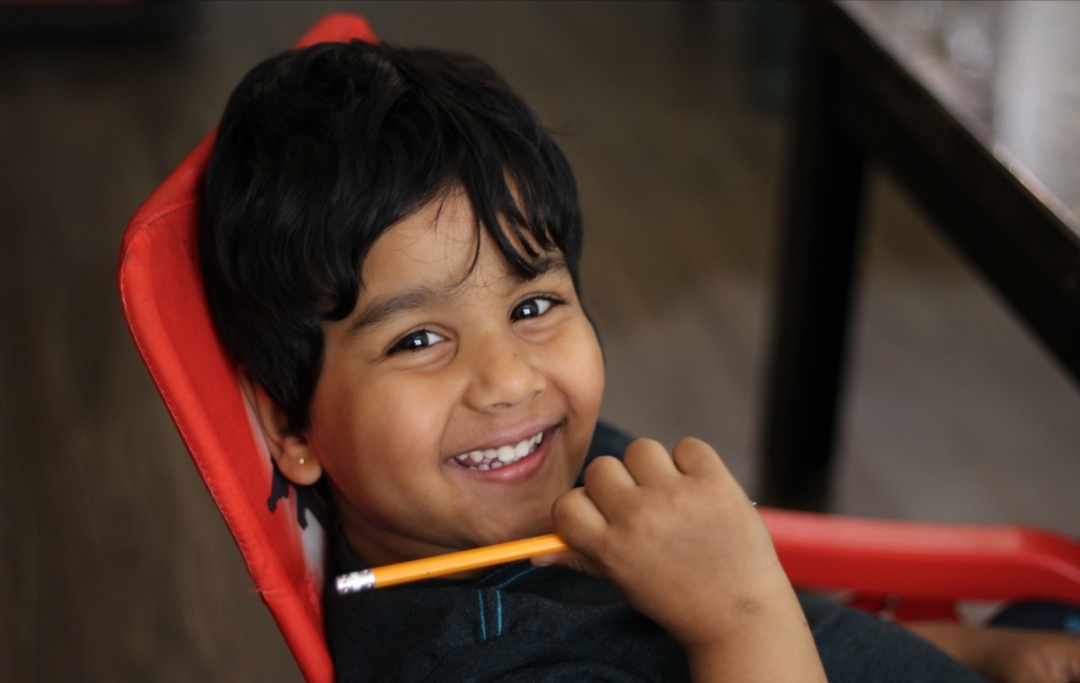By Siyona Varghese
As a parent, you play a vital role in supporting your child’s emotional development, especially during their early years. Emotional development is the process by which children learn to express and manage their emotions effectively. It’s a critical part of their growth that lays the foundation for their social and cognitive development.
Three-year olds are at a crucial stage in their emotional development, where they begin to understand and express their feelings in more complex ways. They become more aware of their emotions and those of others around them, which makes it an ideal time for parents to focus on supporting their child’s emotional development.
Here are some ways parents can help their 3-6 year-olds develop emotionally:
Create a safe and secure environment: A child’s emotional development is directly influenced by their environment. As a parent, it’s essential to create a safe and secure environment where your child feels loved and valued. This means creating a home that is free from conflict and providing your child with a sense of stability and consistency. For instance, try not to have conflicts, fights and emotionally charged arguments with other adults in front of your child. Ensure your child understands that you love her and that she can depend upon you.
Encourage expression of emotions: It’s important to encourage your child to express their emotions openly and honestly. Help your child to recognize and name their feelings (such as anger, sadness, frustration, happiness), so they can learn to manage them effectively. Encourage them to talk about their emotions and ask questions to help them understand their feelings better.
Provide positive feedback: Positive feedback is crucial to a child’s emotional development. It helps to build their self-esteem and confidence. Provide your child with positive feedback regularly, such as praising them for their efforts or accomplishments and make sure they feel valued and loved. Rather than praising them generally, praise them for something they did right.
Do not focus on the negative: Do not harp on the negative as it may reinforce that negative activity. In case of behaviour or action you disapprove, tell them once about what they did wrong and focus on changing it in a positive way. Do not call a child ‘bad’ or ‘naughty’ as they may start seeing themselves in that way. You can call an action as bad but not the child.
Help your child develop empathy: Empathy is the ability to understand and share the feelings of others. Helping your child develop empathy is an essential part of their emotional development. Encourage them to put themselves in other people’s shoes and think about how they would feel in different situations. Teach them to be kind and considerate towards others. Be aware that empathy develops slowly. Your child may start showing empathy from age 3 but it doesn’t fully develop until children are 8 to 10 years old or even older. Help your child understand other’s feelings and being kind towards them but don’t get frustrated if they don’t show empathy right away as it is a slow process.
Be a good role model: Parents are the most influential role models for their children. Your children are likely to model their behavior based on what they see you do. As a parent, it’s essential to model positive behavior and emotional regulation. Show your children how to manage their emotions effectively and respond to different situations appropriately.
Provide opportunities for social interaction :Social interaction is crucial for your child’s emotional development. It helps them learn to communicate, share and develop friendships. Provide opportunities for your child to interact with other children their age, such as play-dates or attending a preschool or daycare.
Teach your child to problem-solve: Problem-solving is an important part of emotional development. It helps children learn to manage their emotions and deal with challenging situations effectively. Teach your child problem-solving skills by encouraging them to think critically and come up with solutions to different problems they encounter.
In conclusion, parents play a crucial role in supporting the emotional development of their 3-year-olds. Creating a safe and secure environment, encouraging the expression of emotions, providing positive feedback, helping your child develop empathy, being a good role model, providing opportunities for social interaction and teaching your child to problem-solve are all essential steps in supporting your child’s emotional development.
By supporting your child’s emotional development, you are laying the foundation for their future success in life. It’s essential to remember that emotional development is a process and every child develops at their own pace. Be patient, supportive and consistent in your approach and your child will thrive emotionally.






